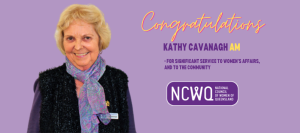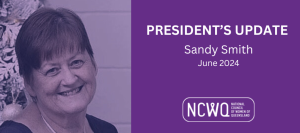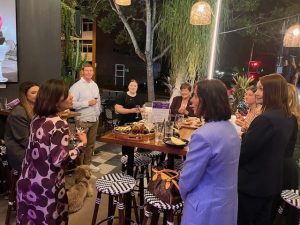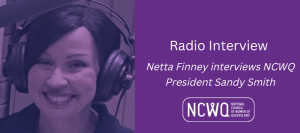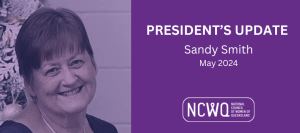To mark 2020 International Women’s Day (#EachforEqual), NCWQ is profiling an impressive women each day in and around the 8th March. These featured young women are past NCWQ Bursary Recipients, and have demonstrated incredible leadership, success, community service, intelligence and commitment to their personal and professional passions. In today’s feature, past bursary recipient Leah Zandonadi shares her thoughts.
To learn more about the bursary program, keep an eye on our website in the coming month.
- What were the benefits to you in being a 2019 NCWQ bursary recipient?
I was fortunate to be the recipient of the Quota International Centenary Bursary for Speech Pathology. This bursary has assisted me financially for travel and accommodation costs that are associated with my final year university placements.
2. What are your goals for this year?
My main goal for this year is to graduate university with a Bachelor of Speech Pathology! Within that big goal, one of my smaller goals is to be more confident as a clinician. I have set myself up well with the theory components of the course, but this final stretch is about putting that knowledge into practice. A goal for my personal life is to spend more time outdoors and with friends. I lost the work-life balance a bit last year unfortunately, but my housemates here on placement have kept me busy after work each day and on weekends by taking me to the hidden gems around the region I’m in. It’s something I definitely want to keep up when I am back from placement and can see my friends at home again!
3. What is your personal mantra or self-talk that you use to keep yourself on track in pursuing your aspirations?
My personal mantra is “don’t fake it until you make it; know so you can grow.” At this point in my life I would say that I am academically driven, so a lot of what I do is to help me in that aspect. It for sure hasn’t been an easy road to get to where I am, but this quote keeps me on track and reminds me that I will benefit from putting in the hard yards over the duration of this degree because I want to be the best speech pathologist I can be.
4. Who have been your most significant female role models?
This is a hard one! I would have to say that everyone that has been involved in my tertiary education has influenced me one way or another, in my current life and my future. More than 95% of speech pathologists in Australia are female, so there’s so many women to look up to! I have been taught by the same female lecturers (who are all qualified speech pathologists) since my first year of study, meaning they have been there every step of the way to support and mentor me. I love hearing their stories about their experiences in the workforce, because I hope to have those same big life-changing impacts on my clients in the future. My clinical educators and supervisors on external placements are always reminding me that they were once in my shoes. They have been incredible in helping me build confidence as a clinician and know that this is just the beginning of a great career. And of course, my mum is another significant female role model in my life for more reasons than I can list.


